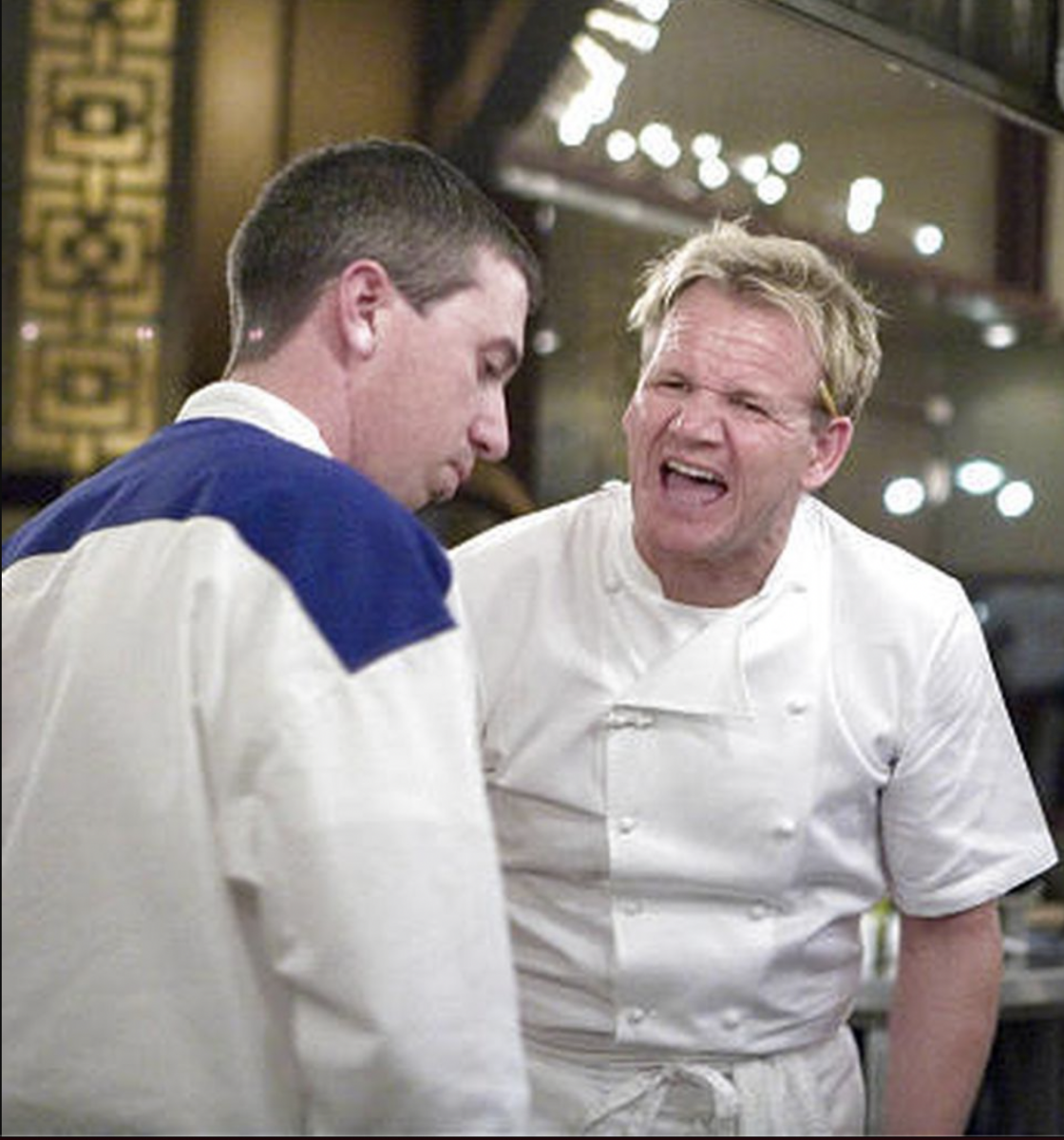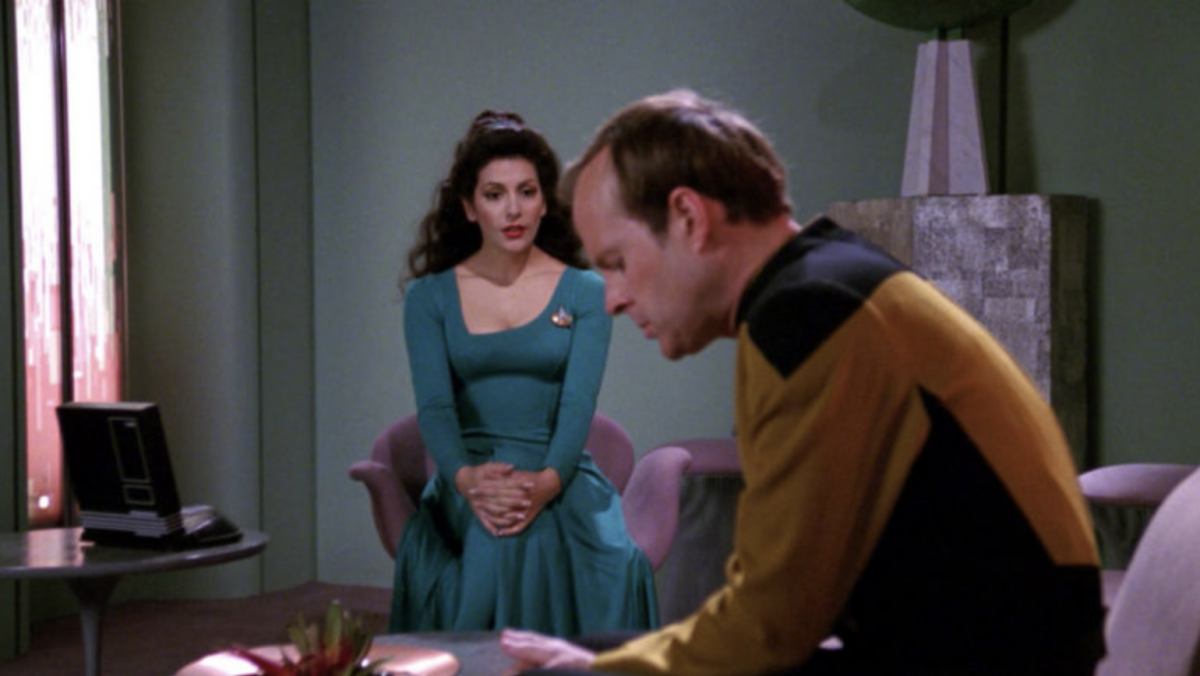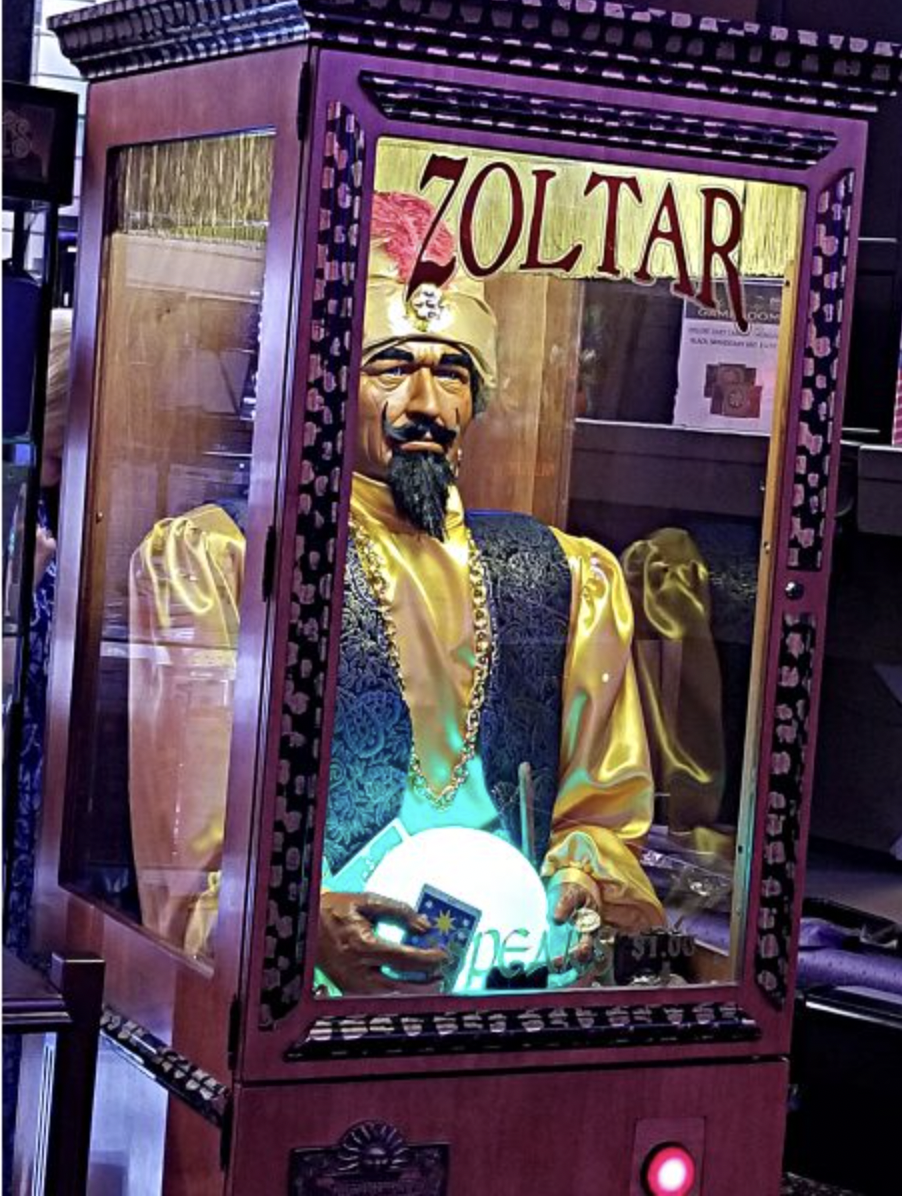It’s Time
 As I continue growing much older and a tiny bit wiser, I keep returning to an idea that’s been nipping at my risk-averse consciousness for some time.
As I continue growing much older and a tiny bit wiser, I keep returning to an idea that’s been nipping at my risk-averse consciousness for some time.
One of the most glaring shortcomings of far too many school districts across the country is the lack of meaningful mentoring / coaching / reflective listening for teachers – particularly new teachers or those recently thrown into new situations.
There are no doubt many reasons for this, but funding must surely top the list. With class sizes perpetually problematic, ever-expanding demands made on educators without commensurate support, and the ongoing onslaught of criticism over every dollar not spent teaching patriotism and math, schools simply lack the resources to properly invest in their teachers. Instead, administrators understandably tell themselves that department heads will fill that role (you know, in their spare time) or that colleagues can be assigned to answer questions and provide “support.” They may even throw in a small stipend for their trouble.
None of this is meant to be critical of districts or administrators making tough decisions with limited options. But it’s a very real problem – if not universal, at least ubiquitous. I can’t solve it for any significant number of individual educators, but I can offer my humble efforts to a few. Numerous inspirational short stories, at least one parable, and several pop songs from the 1960s and 1970s suggest that’s enough to justify taking the leap.
Credentials
 I’m old and have seen much over the years, both directly and through the eyes of the literally thousands of other teachers with whom I’ve worked. I’ve been through official teacher mentor / coaching training in several iterations despite the eventual decision by the folks paying for all that training deciding not to invest in long-term formal implementation. Perhaps most significantly, I’ve mentored / coached teachers in person for years and years and years – sometimes even for that small stipend I mentioned.
I’m old and have seen much over the years, both directly and through the eyes of the literally thousands of other teachers with whom I’ve worked. I’ve been through official teacher mentor / coaching training in several iterations despite the eventual decision by the folks paying for all that training deciding not to invest in long-term formal implementation. Perhaps most significantly, I’ve mentored / coached teachers in person for years and years and years – sometimes even for that small stipend I mentioned.
If you decide after reading the rest of this post that you’re potentially interested, I’ll gladly share a more detailed resume / pedigree with you. For now, those are the basics.
I’m not magical or a genius or better than every other educator out there. (I mean, I’m better than a lot of them… but that’s really not the point.) What I am is available and willing, with a decent track record and a belief in most teachers’ potential vs. the realities beating them down week after week. It’s something I’d like to spend more time and energy on, in fact.
So here’s what I’m offering – for those of you still kinda interested, or at least still reading.
Let’s Get Personal

I’m looking for 4 – 5 individuals who could use a little extra support and encouragement as they enter the upcoming school year. We’d meet virtually for about 30 minutes every other week to talk about how things are going for you in class, with students, peers, or administration, or anything else related to your role as an educator.
This is judgement-free assistance. It’s completely confidential (no calls to your principal asking them to do something about your weirdo grading policies) and based on your specific needs.
It’s a time to process your thoughts and feelings in the interest of a better professional experience. To help you figure out how to use class time more effectively. To develop strategies for dealing with difficult students (or colleagues). To manage classroom dynamics. Maybe even to {insert professional concerns here}. It’s largely up to you, combined with my pithy insights and don’t you think it’s time we talk about WHAT’S REALLY GOING ON?!?
It’s all the stuff your education professors have already told you matters and to which your district has hopefully paid at least some lip service. (Presumably if you’re in one of the handful of districts which provides this kind of extended support, you’re still reading only out of pity for the poor souls in other districts.)
Logistics & Specifics
 If you think you might be interested, we can get a bit more technical about mutual expectations and the logistical stuff. There are different schools of thought on what constitutes effective “coaching” and how it’s distinct from “mentoring” and why neither should be conflated with “counseling,” etc. Experience suggests it’s worth making sure we’re on the same general page before anyone says “I DO.” That’s best done not-on-the-blog.
If you think you might be interested, we can get a bit more technical about mutual expectations and the logistical stuff. There are different schools of thought on what constitutes effective “coaching” and how it’s distinct from “mentoring” and why neither should be conflated with “counseling,” etc. Experience suggests it’s worth making sure we’re on the same general page before anyone says “I DO.” That’s best done not-on-the-blog.
I believe there’s still plenty of room for flexibility based on individual style and circumstances within the accepted boundaries which define “doing it right.” For now, I’ll limit myself to a few essential clarifications before inviting you to email me if your interest has been even mildly piqued.
There’s no money involved in this arrangement (in either direction). Yes, it’s possible that a few years from now I might consider something more formally structured and fiscally remunerative. No, I’m not working towards selling you a service or a product or a subscription or whatever. I’ve been blessed by those around me for so many years and genuinely believe in this sort of thing as one way to “pay it forward.” Right now, that’s all there is to it.

As a practical matter, I’m limiting this coming year to 4 – 5 participants. If I have to turn anyone away, it’s not personal. If I have to choose, I’ll prioritize those I believe I can help most effectively and with an eye towards participant diversity.
I’m asking for a bi-weekly commitment of around 30 minutes and making that commitment to you in return. It’s not dogmatic and shouldn’t be taken as “one more thing on your plate” or as something at which you might “fail.” We’d work out a starting point around the beginning of your school year and conclude somewhere near the end. If something changes and you need to alter your commitment level, we’re good. (I can’t serve your mental and emotional health by adding stress and obligation to your life. That would be silly.)
Periodically throughout the year, I may ask you for some brief, specific feedback about elements of the experience. Again, it’s not a major task for you to undertake – it’s a “check-in” to see how it’s going, what you’re finding effective or otherwise useful, and what you’re not.
10… 9… 8… 7…
 That’s it. Pretty straightforward. If you’re not interested, feel free to pass this along to someone who might be. If you’re feeling that nervous little tingly feeling like maybe you should absolutely do this but you’re worried about, I dunno… whatever you’re worried about, take a breath. Shoot me that email. You’re not committing to anything. Let’s talk (or email) and see if those initial interactions make you feel better or worse – and go from there.
That’s it. Pretty straightforward. If you’re not interested, feel free to pass this along to someone who might be. If you’re feeling that nervous little tingly feeling like maybe you should absolutely do this but you’re worried about, I dunno… whatever you’re worried about, take a breath. Shoot me that email. You’re not committing to anything. Let’s talk (or email) and see if those initial interactions make you feel better or worse – and go from there.
If you find yourself interested in the possibilities but unsure whether or not you should reach out, it may help to frame the issue in terms of “doing me a favor.” Obviously the primary intent is for the time to be useful for you, but if it matters, it will be genuinely helpful for me as well, if perhaps in a slightly different fashion.
I look forward to hearing from you. [email protected].

 Well, my #11FF, I decided to record a few podcasts for new (or reviving) educators. This seems like a wonderful idea because I lack the proper equipment, there are dozens of excellent education podcasts out there already, I have nothing to sell, and this year is so weird it’s hard to know how to prepare for it anyway.
Well, my #11FF, I decided to record a few podcasts for new (or reviving) educators. This seems like a wonderful idea because I lack the proper equipment, there are dozens of excellent education podcasts out there already, I have nothing to sell, and this year is so weird it’s hard to know how to prepare for it anyway. My first year teaching, I had only one prep. I had four sections of U.S. History, fifth hour plan, and finished my day monitoring whatever in-house detention was called – essentially a second planning period. Compared to what we normally do to baby teachers, it was an amazing schedule.
My first year teaching, I had only one prep. I had four sections of U.S. History, fifth hour plan, and finished my day monitoring whatever in-house detention was called – essentially a second planning period. Compared to what we normally do to baby teachers, it was an amazing schedule. Colby was maybe the first time I really understood what a mess kids could be and remain, you know… loveable. I’d never experienced teenagers like this before – witty, fun, broken, hurting, desperate for approval, defiant of most control. I’d get to know a wide variety of them over the years, but Colby was the first who really stood out. He deserved more than I had to offer back then; I lacked the experience or wherewithal to offer much more than a kind adult presence in what I suspect was a rather chaotic teenage life. And – in my blurry memories of those first years, at least – this was his finest moment.
Colby was maybe the first time I really understood what a mess kids could be and remain, you know… loveable. I’d never experienced teenagers like this before – witty, fun, broken, hurting, desperate for approval, defiant of most control. I’d get to know a wide variety of them over the years, but Colby was the first who really stood out. He deserved more than I had to offer back then; I lacked the experience or wherewithal to offer much more than a kind adult presence in what I suspect was a rather chaotic teenage life. And – in my blurry memories of those first years, at least – this was his finest moment. The rest of the story has blurred a bit as I’ve retold it over the years, but that moment is locked forever in my teacher psyche. My oracle, Colby of the Frazzled Hair.
The rest of the story has blurred a bit as I’ve retold it over the years, but that moment is locked forever in my teacher psyche. My oracle, Colby of the Frazzled Hair.  The scaffolds designed to support us too easily morph into cages preventing us from doing whatever we were supposedly learning to do. The rules, instructions, and policies written in service of our pedagogical goals and ideologies surreptitiously overthrow and replace them. Do our fences help define our essential tasks and relationships, or shield us from the uncomfortable, learning, stretching, human parts? Do they provide guidance, or merely mask the need to think, innovate, or meaningfully connect?
The scaffolds designed to support us too easily morph into cages preventing us from doing whatever we were supposedly learning to do. The rules, instructions, and policies written in service of our pedagogical goals and ideologies surreptitiously overthrow and replace them. Do our fences help define our essential tasks and relationships, or shield us from the uncomfortable, learning, stretching, human parts? Do they provide guidance, or merely mask the need to think, innovate, or meaningfully connect? I’m a 2nd year 7th grade Texas History teacher. When I started – I was thrown into the mix mid year, in an urban, Title 1, public school. I was a first time teacher and was completely overwhelmed. I was learning all new curriculum, getting the hang of balancing the piles of paperwork and deadlines, learning classroom management, and trying to grow professionally all at one time. It was a mess.
I’m a 2nd year 7th grade Texas History teacher. When I started – I was thrown into the mix mid year, in an urban, Title 1, public school. I was a first time teacher and was completely overwhelmed. I was learning all new curriculum, getting the hang of balancing the piles of paperwork and deadlines, learning classroom management, and trying to grow professionally all at one time. It was a mess.